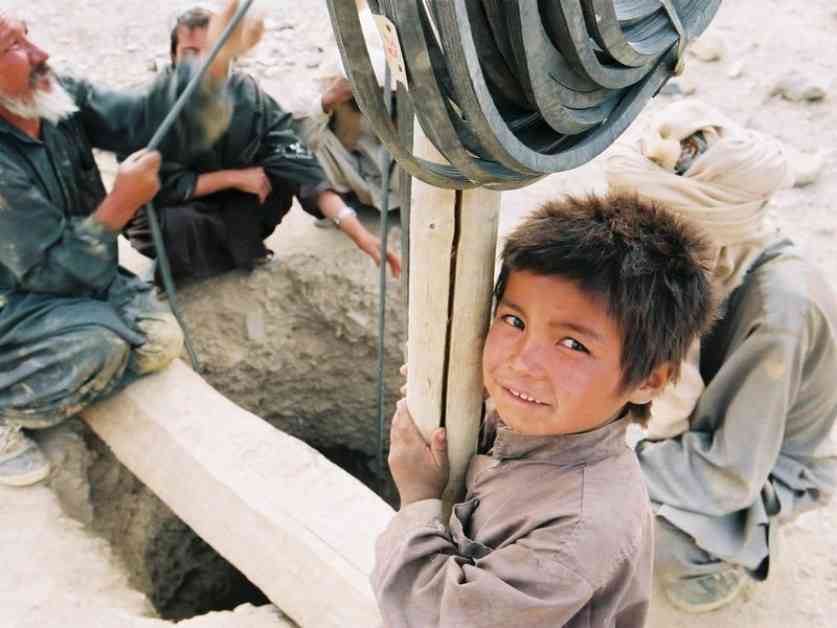Afghanistan Humanitarian Crisis: Two-Thirds of Population in Need – Women’s Rights Deteriorate
The humanitarian situation in Afghanistan remains dire three years after the Taliban takeover, with Caritas International highlighting the critical conditions. According to Caritas International, the aid organization of the German Caritas, 97 percent of the Afghan population live in poverty, with two-thirds of the people relying on humanitarian assistance. Oliver Müller, the head of Caritas International, emphasizes the urgent need to support the people in Afghanistan during this crisis: „It is our humanitarian obligation to provide women, men, and children with the essentials for survival and ensure a minimum level of medical care as long as we are able to do so.“
Positive developments in the security situation have facilitated humanitarian aid efforts. Müller notes, „Following the end of armed conflicts, the opportunities to assist those in need have significantly improved in many regions of the country. Our aid workers can now access previously inaccessible, conflict-ridden remote areas.“ This progress is made possible through specific agreements with regional authorities and partnerships with local organizations.
However, alongside these positive developments, there has been a significant deterioration in the human rights situation for women, girls, and ethnic minorities. Women, for instance, are barred from university education and are largely excluded from working for aid organizations. These measures not only discriminate against women but also pose life-threatening consequences, as the absence of female staff hinders the provision of assistance. Oliver Müller explains, „There are limits to our compromise. Where we cannot implement the ‚With Women – For Women‘ approach, we must discontinue our aid efforts. This has already occurred in various instances.“
Caritas International has been active in Afghanistan since the 1980s and currently supports diverse projects, including humanitarian aid for promoting food security, improving water supply in rural areas, providing psychosocial support, enhancing maternal and child health, operating a prosthetics workshop, and managing a leprosy-tuberculosis center. With 26 local staff members in Kabul coordinating these efforts, Caritas International appeals for donations under the keyword „Afghanistan.“
Subheadings:
### Challenges in Afghanistan’s Humanitarian Crisis
The humanitarian crisis in Afghanistan continues to worsen, with the majority of the population facing poverty and relying on aid for survival. Caritas International’s efforts to address this crisis have highlighted the urgent need for support to alleviate the suffering of women, men, and children in the country. Despite the challenges, positive developments in the security situation have enabled aid organizations to reach more people in need.
### Women’s Rights in Decline
The deterioration of women’s rights in Afghanistan poses a significant challenge to humanitarian efforts, as women are increasingly marginalized and excluded from essential services. The restrictions imposed on women, such as limitations on education and employment opportunities, not only violate their rights but also hinder the effective delivery of aid. Caritas International’s response to these challenges underscores the importance of prioritizing gender equality and women’s empowerment in humanitarian interventions.
### Caritas International’s Response and Call for Support
Caritas International’s longstanding presence in Afghanistan and commitment to addressing the country’s humanitarian crisis demonstrate the organization’s dedication to providing essential assistance to those in need. With a focus on projects that promote food security, water access, healthcare, and social support, Caritas International plays a vital role in mitigating the impact of poverty and conflict on vulnerable populations. The call for donations underscores the ongoing need for support to sustain these critical efforts and uphold the principles of humanitarian aid.
In conclusion, the humanitarian crisis in Afghanistan demands immediate attention and support to alleviate the suffering of the population, particularly women and marginalized groups. Caritas International’s efforts to address the challenges facing the country underscore the importance of upholding human rights, promoting gender equality, and providing essential assistance to those in need. By raising awareness and mobilizing resources, organizations like Caritas International play a crucial role in responding to humanitarian crises and supporting vulnerable communities in times of crisis.

